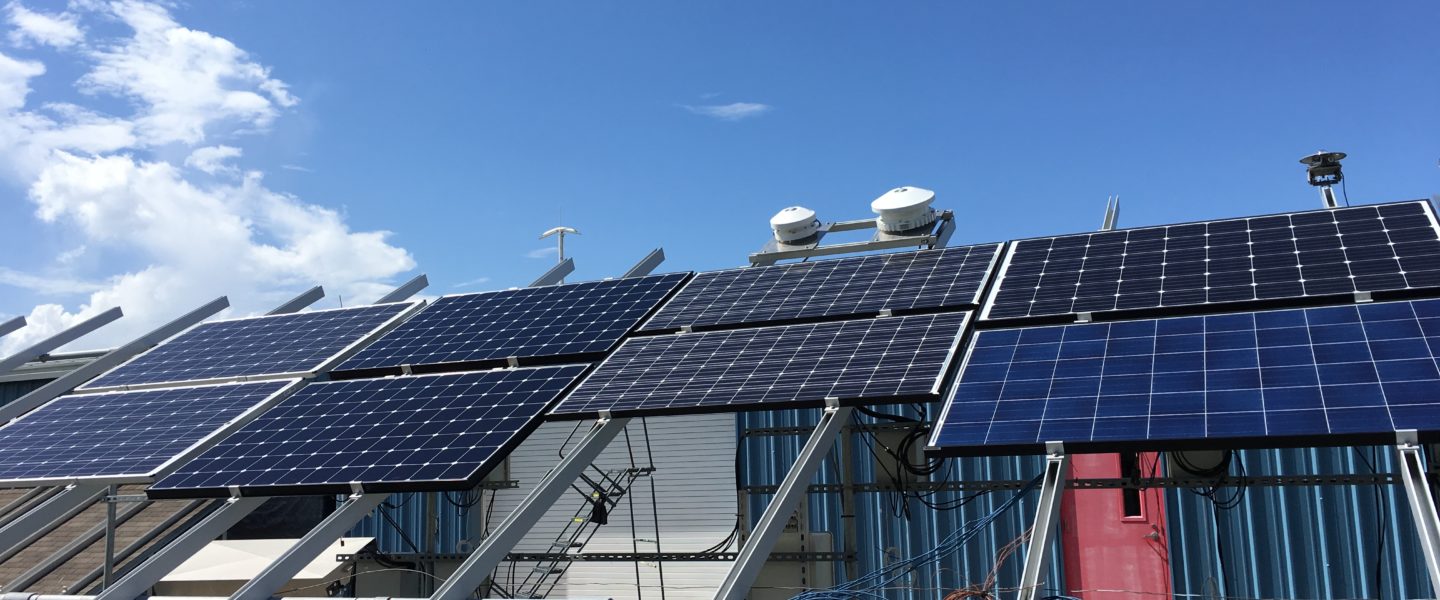 The photovoltaic capabilities at the FSEC Energy Research Center range from small-scale thin film photovoltaic (PV) cell manufacturing to large-scale commercial PV systems testing. Photovoltaic capabilities also include module durability, and on-site testing and field evaluation of solar lighting systems. Intructor-led, hands-on training, and photovoltaic technical support are also areas of expertise.
The photovoltaic capabilities at the FSEC Energy Research Center range from small-scale thin film photovoltaic (PV) cell manufacturing to large-scale commercial PV systems testing. Photovoltaic capabilities also include module durability, and on-site testing and field evaluation of solar lighting systems. Intructor-led, hands-on training, and photovoltaic technical support are also areas of expertise.
Module Testing Laboratory
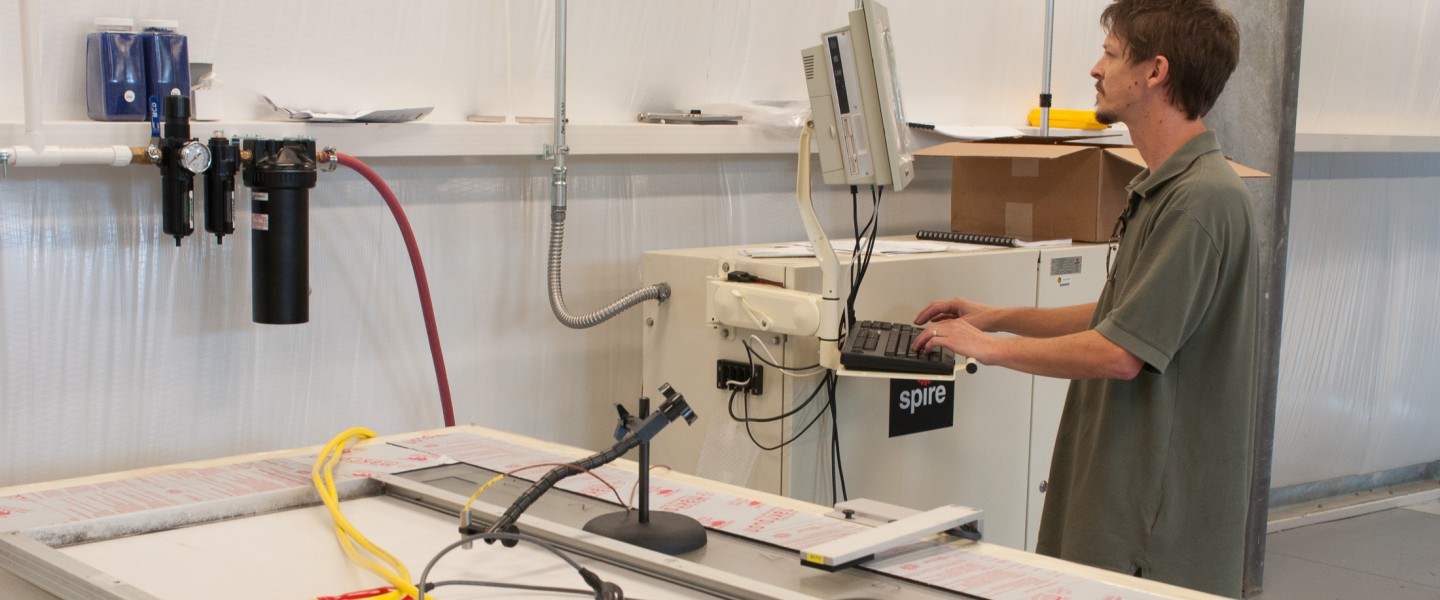 The module characterization lab compliments the outdoor infrastructure and completes the photovoltaic module testing capability. Researchers are able to conduct world-class diagnostic and baseline PV module measurements using electroluminescence (EL) imaging, infrared (IR) thermography imaging, I-V and Suns-Voc flash testing, and dark I-V. Our system is capable of performing these measurements while simultaneously inducing static and dynamic loads using mechanical load tester. Full Description.
The module characterization lab compliments the outdoor infrastructure and completes the photovoltaic module testing capability. Researchers are able to conduct world-class diagnostic and baseline PV module measurements using electroluminescence (EL) imaging, infrared (IR) thermography imaging, I-V and Suns-Voc flash testing, and dark I-V. Our system is capable of performing these measurements while simultaneously inducing static and dynamic loads using mechanical load tester. Full Description.
Inverter Test Facility
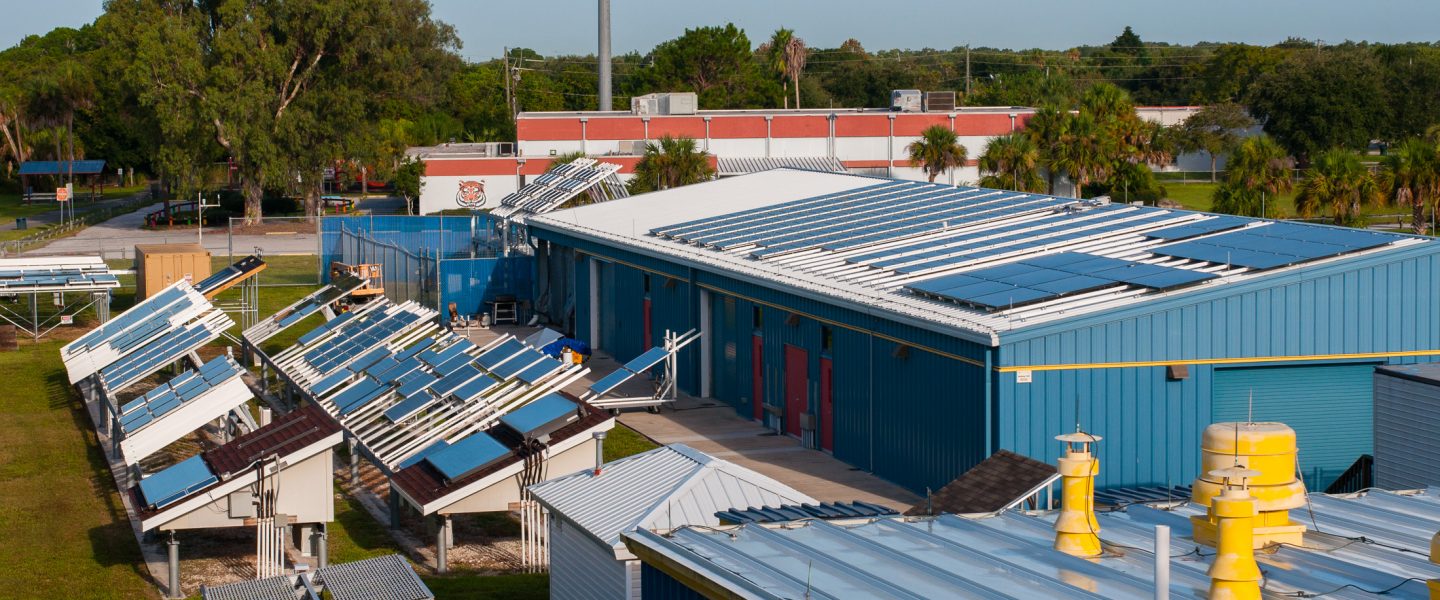
Hot, humid climate provides operational challenges for equipment manufacturers. Fortunately, the FSEC Energy Research Center provides highly-reliable results for photovoltaic array and inverter testing. Researchers collect and analyze data to characterize the performance of inverters and PV systems in different configurations. They gain useful insight in key performance concerns, including array and inverter efficiencies and system reliability.
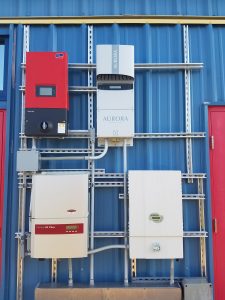 Testing Parameters
Testing Parameters
The inverter test facility includes a configurable 12-kW PV array and four parallel test beds. Each test bed monitors the following parameters: DC voltage, DC current, AC Voltage, AC Power and inverter temperature. A separate, synchronized data logger records solar irradiance, ambient temperature, and several PV array temperatures.
Data Collection
Inverter testing includes data collection in near real-time for DC input currents and voltages, and AC output parameters. Multiple internal and external inverter temperature location points are measured. Cumulative energy harvests and instantaneous power measurements are also recorded.
Component Testing
Capability exists to test grid-tied string inverters, micro-inverters, grid-tied battery backup, and off-grid battery backup technologies.
Data collection includes near real-time meteorological data—alongside the photovoltaic array and inverter data sets. Measurements include direct and diffuse solar irradiance, ambient temperature, rainfall amount, relative humidity, and wind speed.
Auxiliary Site Test Facility
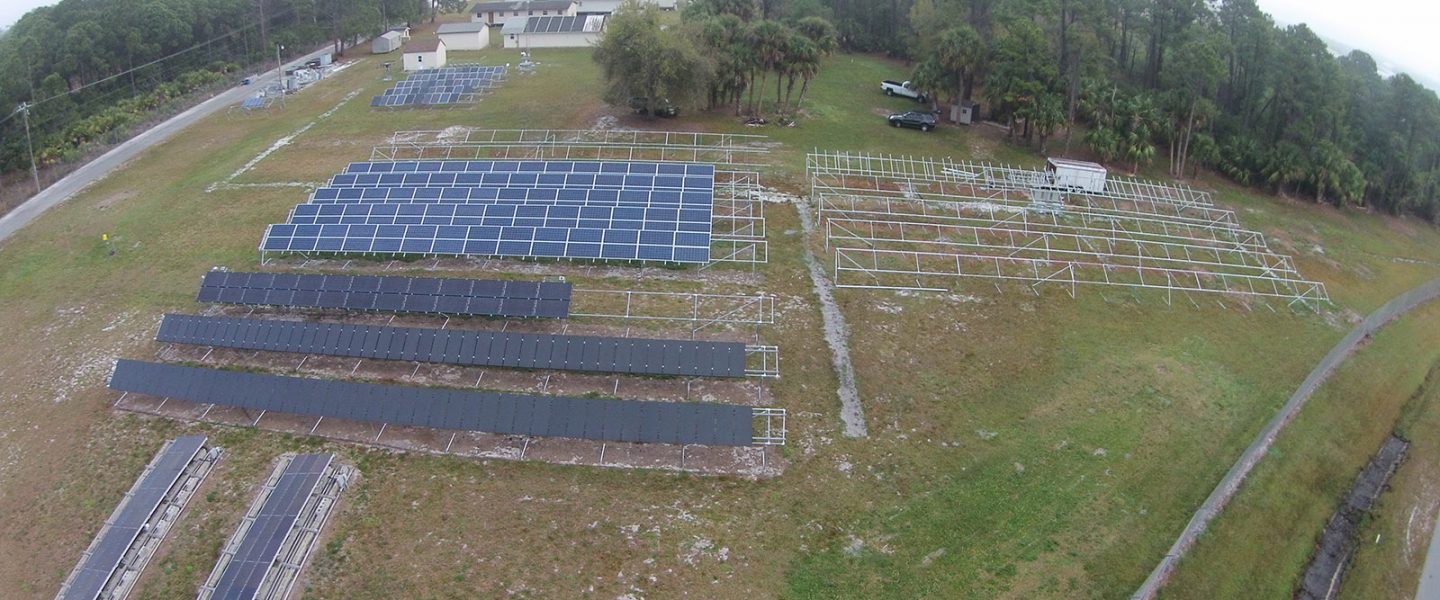
Located approximately three miles from the main office building in Cocoa, FL. The auxiliary site test facility, is capable of testing large-scale commercial photovoltaic systems. More than 100kW of installed sub-systems are constantly monitored and analyzed. The currently installed infrastructure can accommodate upwards of 200kW of photovoltaic systems.
Photovoltaic capabilities at FSEC Energy Research Center continue to grow. As seasoned experts in solar research, our team can help meet your research or testing needs.
Have a photovoltaic research or testing need? Contact ckettles@fsec.ucf.edu.
Photovoltaic Materials Laboratory
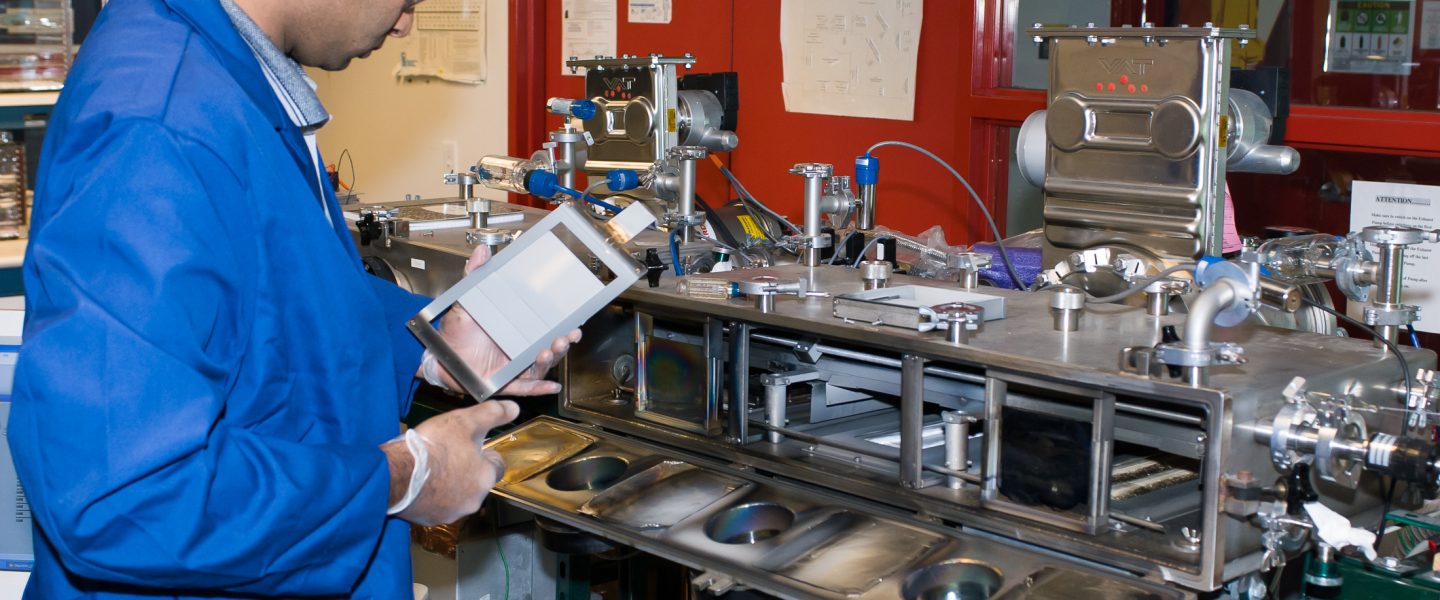
Researchers and graduate students in the Photovoltaic Materials Laboratory conduct a wide range of research for the development of renewable energy. Research projects include: PV module aging and durability testings, the development of thin film solar cells for terrestrial and space applications, and the development of photoelectrochemical (PEC) cells for hydrogen production. This lab has excellent facilities for the preparation and characterization of large 4”x 6” solar cells, which are viable to serve as a nucleus of a pilot plant for fabrication of CIGSS thin film mini-modules.
[Last updated 12/20/2019]
